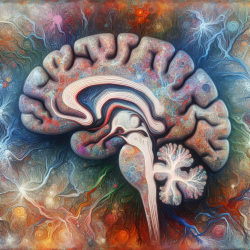Educational kinesiology, often known as Brain Gym, has long been a favored intervention among educators for enhancing brain functioning through physical movements. However, it has faced criticism due to the lack of scientific evidence supporting its efficacy. A recent study titled "Revisit the Effectiveness of Educational Kinesiology on Stress and Anxiety Amelioration in Kindergarteners With Special Needs Using Biological Measures" sheds new light on its potential benefits, particularly for children with special needs.
Understanding the Research
The study adopted a quasi-experimental design involving 37 kindergarteners aged 3.5 to 6.5 years, all of whom had special needs. The children were divided into two groups: an intervention group that received a 1-hour educational kinesiology session weekly for 10 weeks, and a control group. The effectiveness of the intervention was measured using both subjective (Parent-rated Preschool Anxiety Scale, PAS-TC) and objective (salivary cortisol and oxytocin levels) measures.
Key Findings
The study yielded several significant findings:
- Increased Oxytocin Levels: The intervention group exhibited a significant increase in salivary oxytocin levels compared to the control group, suggesting a potential anti-anxiety effect.
- Reduction in Anxiety: There was a significant improvement in anxiety levels in the intervention group as measured by PAS-TC scores.
- Non-significant Cortisol Changes: While there was a trend toward reduced cortisol levels in the intervention group, the changes were not statistically significant after controlling for baseline values, gender, and types of special needs.
Practical Implications for Practitioners
Given these findings, practitioners can consider incorporating educational kinesiology into their therapeutic repertoire for children with special needs. Here are some actionable steps:
- Training and Certification: Ensure that practitioners and educators undergo proper training and certification in educational kinesiology to maximize its benefits.
- Regular Sessions: Implement regular, weekly sessions of educational kinesiology to observe significant improvements in anxiety and stress levels.
- Parental Involvement: Educate parents about the techniques so they can continue the exercises at home, reinforcing the intervention's effects.
- Monitor Biomarkers: Use objective measures like salivary oxytocin levels to track progress and adjust the intervention as needed.
Encouraging Further Research
While the study provides promising evidence, it also highlights the need for further research. Future studies with larger sample sizes and randomized controlled trials are essential to confirm these findings and explore the underlying physiological mechanisms of educational kinesiology.
To read the original research paper, please follow this link: Revisit the Effectiveness of Educational Kinesiology on Stress and Anxiety Amelioration in Kindergarteners With Special Needs Using Biological Measures.










